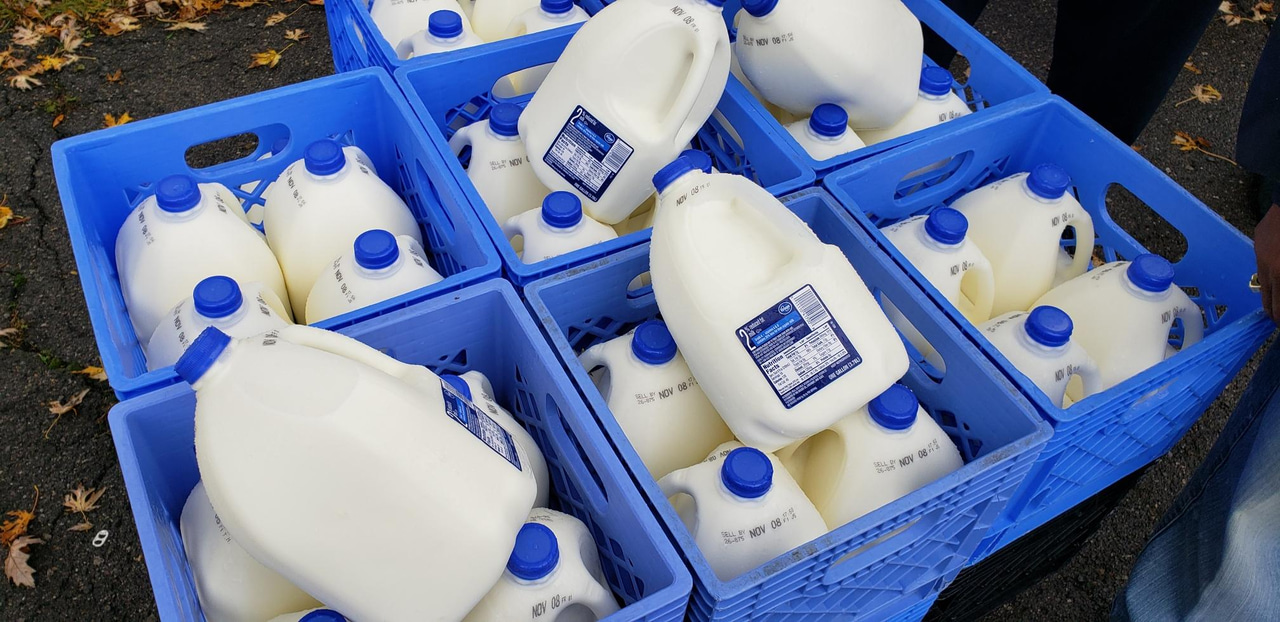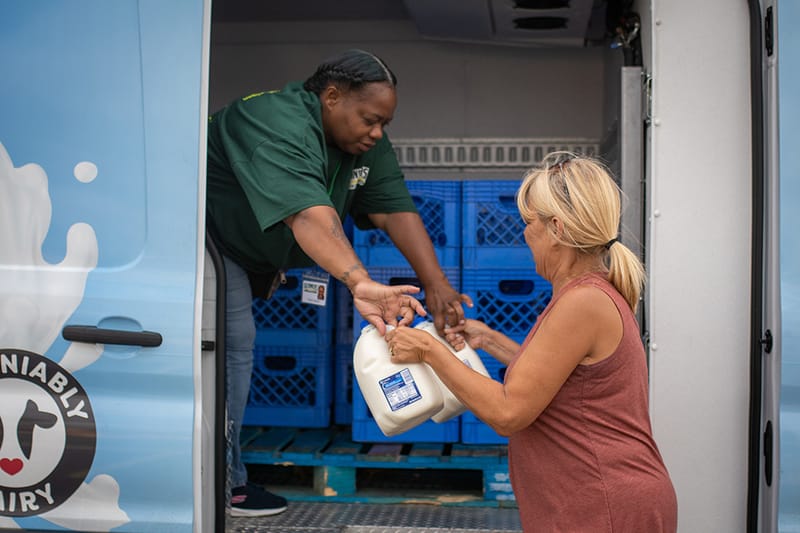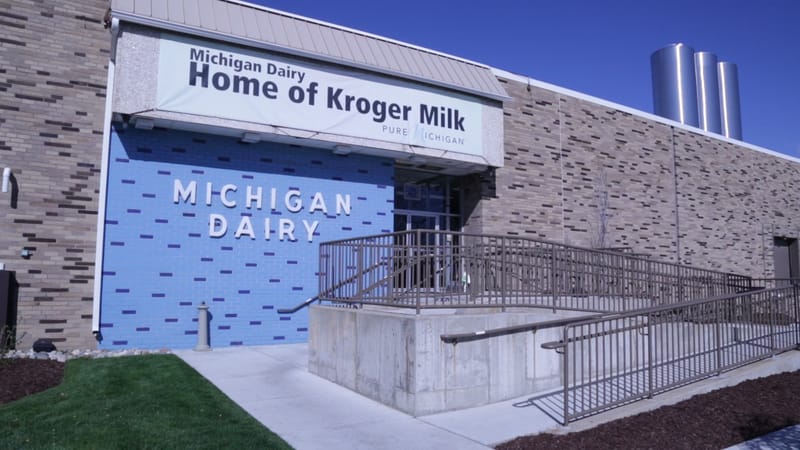Kroger expands Dairy Rescue Program to redirect surplus milk
COVID-19 impact forces dairy producers to dump millions of gallons of milk
April 30, 2020

The Kroger Co. is augmenting its Dairy Rescue Program to donate milk to those in need, as dairy farmers nationwide dump millions of gallons of milk due to plunging demand amid the coronavirus crisis.
Kroger said Thursday that, in partnership with its dairy cooperative suppliers and farmers across the Midwest and South, it will process and donate about 200,000 gallons of additional milk to Feeding America food banks and community groups through the end of August. The effort is part of the Cincinnati-based grocer’s Zero Hunger | Zero Waste anti-hunger and sustainability initiative.
Through the extended Dairy Rescue Program, dairy cooperatives will donate surplus milk typically sold to restaurants, schools and hotels, and Kroger will donate the processing and packaging of the donated milk. In some areas, Kroger’s logistics team also will donate the transportation of the milk to local food banks. The milk will go to support children and families during the COVID-19 pandemic through the summer months, the retailer said.
“Kroger recognizes the growing need for fresh, highly nutritious food in our community, especially for children as schools remain closed during the pandemic to flatten the curve,” Erin Sharp, group vice president of manufacturing at Kroger, said in a statement. “At a time when dairy farmers have surplus raw milk, we’re doubling down on our mission to reduce hunger and waste.”

Through the extended Dairy Rescue Program, dairy cooperatives will donate surplus milk typically sold to restaurants, schools and hotels, and Kroger will donate the processing and packaging of the donated milk.
Building on an existing partnership model between Kroger and its dairy cooperative suppliers, the expansion of the Dairy Rescue Program aims to direct more fluid milk — one of the most-requested but harder-to-stock items at food banks — to food-insecure communities, according to Kroger.
Published reports cite estimates from Dairy Farmers of America, the nation’s largest dairy cooperative, that 2.7 million to 3.7 million gallons of milk could be dumped daily as demand dries up from the shutdown of restaurants and other foodservice customers, such as schools, hotels, corporate and government offices, and other institutions and venues.
“As the COVID-19 pandemic has forced businesses like restaurants and hotels across the country to close, some of America’s farmers are left without buyers for their dairy supply,” explained Heather McCann, director of public affairs for Dairy Farmers of America’s Mideast area. “Kroger’s Dairy Rescue Program is an invaluable resource for the dairy industry during this crisis and beyond, helping distribute and process surplus milk to communities who need it the most.”
Kroger said its Dairy Rescue Program already donated 129,900 gallons of milk a year via its partnerships with the Michigan Milk Producers Association and Dairy Farmers of America. With the program’s expansion, Kroger’s dairy processing plants and suppliers plan to donate another 50,000 gallons of milk per month to local food banks and community organizations. Feeding America member food banks and other partners will help transport the gallons and half-gallons to local hunger relief agencies.

Kroger’s dairy processing plants and suppliers plan to donate another 50,000 gallons of milk per month to local food banks and community organizations.
From May through August, four Kroger manufacturing plants will process the rescued milk for donation.
Those facilities include Tamarack Farms in partnership with Dairy Farmers of America (to benefit the Mid-Ohio Foodbank, YMCA Van Buren, and the Salvation Army in Columbus, Ohio; New Beginnings in Youngstown, Ohio; and the West Ohio Food Bank in Lima, Ohio); Kroger Michigan Dairy in partnership with Michigan Milk Producers Association (to the Food Bank Council of Michigan); Winchester Farms Dairy in partnership with Dairy Farmers of America (to Feeding America Kentucky’s Heartland in Elizabethtown, Ky.; Dare to Care in Louisville, Ky.; God’s Pantry Food Bank in Lexington, Ky.; and the Freestore Foodbank in Cincinnati); and Vandervoort’s Dairy in partnership with Select Milk Producers (to the Tarrant Area Food Bank in Fort Worth, Texas, and the Houston Food Bank).
Transportation will be donated by Penske Logistics for Winchester Farms Dairy and by Quickway Carriers for Vandervoort’s Dairy.
“With so many families struggling with unemployment and food insecurity today, providing access to fresh, nutrient-rich milk has never been more important,” stated Blake Thompson, chief supply chain officer for Feeding America. “Kroger’s Dairy Rescue Program is keeping America’s farmers productive, avoiding unnecessary food waste, and helping families in need.”
Kroger added that its partnership with Centennial Dairy in Atlanta and Dairy Farmers of America is directing 24,000 half-gallons of milk to support health care workers and first responders in Augusta, Macon and Savannah, Ga., over the next month. The retailer said it launched the Great Georgia Give milk donation campaign in metropolitan Atlanta last week with Georgia Commissioner of Agriculture Gary Black.
For our most up-to-date coverage, visit the coronavirus homepage.
About the Author
You May Also Like






